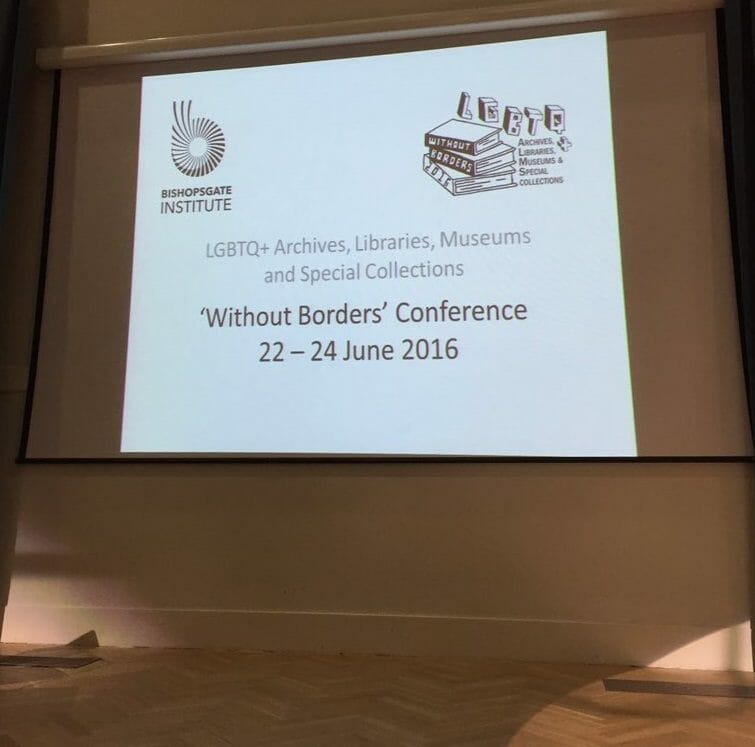Following on from the recent release of Gale’s LGBTQ History and Culture Since 1940 and in the days leading up to London Pride weekend, I recently attended the LGBTQ+ Archives, Libraries, Museums and Special Collections ‘Without Borders’ 2016 conference in London to listen and learn from archivists, activists, librarians, researchers and performers from around the world share their ground-breaking efforts to disseminate knowledge of LGBTI histories and lives.
Highlights included a keynote on the second day of the conference from Gale Advisory Board member Shawn (ta) Smith-Cruz which focussed on the emergence of the black lesbian movement in the US. Shawn spoke eloquently about the history of the Salsa Soul Sisters, the first black lesbian organisation to form in the US in the early 70s, and her role in documenting the stories of its leading figures and archiving their collections. She also spoke movingly about her association with the Rivers of Honey, a performance space for women of colour in New York, where she co-produced performances that gave vivid expression to the experiences of the black lesbian community. Overarching themes in her keynote address included the responsibilities of the archivist/artist/activist to recover and engage with ‘lost’ black lesbian voices from the past, fight against pessimistic narratives of erasure of black ‘herstories’ and the imperative to capture stories of those that are still living that bear witness to past events. This last point echoed the words of Helen Kennedy, Canadian politician and Activist, on the first day of the conference, who spoke of the urgent need to document LGBTQ+ lives now for future generations.

Underscoring many of the conference sessions was the crucial importance of (re)telling stories. Dr Aaron Devor, the world’s first chair in Transgender Studies and founder of the world’s largest transgender archive at the University of Victoria in Canada spoke of the transgender community being largely bereft of a documented history. This missing history heightened the importance of building transgender archives that effectively ‘return’ history to the transgender community through acquired private collections and personal testimonies.
Other themes of the conference included the need to increase access and discovery of LGBTQ+ collections by improving metadata and ensuring up-to-date LGBTQ+ descriptors like ‘transgender’ are included in subject headings; acknowledging the pivotal role that archives play as sites of knowledge production, determining the shape of LGBTQ+ knowledge; tracing LGBTQ+ heritage sites to enrich public memory of physical spaces; the impact of equalities legislation on LGBTQ+ education in schools; the need for permanent rather than temporary LGBTQ+ exhibitions in museums and galleries so that LGBTQ+ stories aren’t viewed independently from wider national stories but are an integral part of them.

The conference, held over 3 days at 3 different sites in London, has been by turns thought-provoking, moving and inspiring as I witnessed knowledge and culture workers within the LGBTQ+ space explore and continue to re-define and extend notions of identity, community, and ways to use the past as a lever to positively influence the present and the future. A future without borders.
Gale’s LGBTQ History and Culture Since 1940 was released in March this year and is available to academic, public, special and government libraries to acquire on behalf of their patrons and users.


